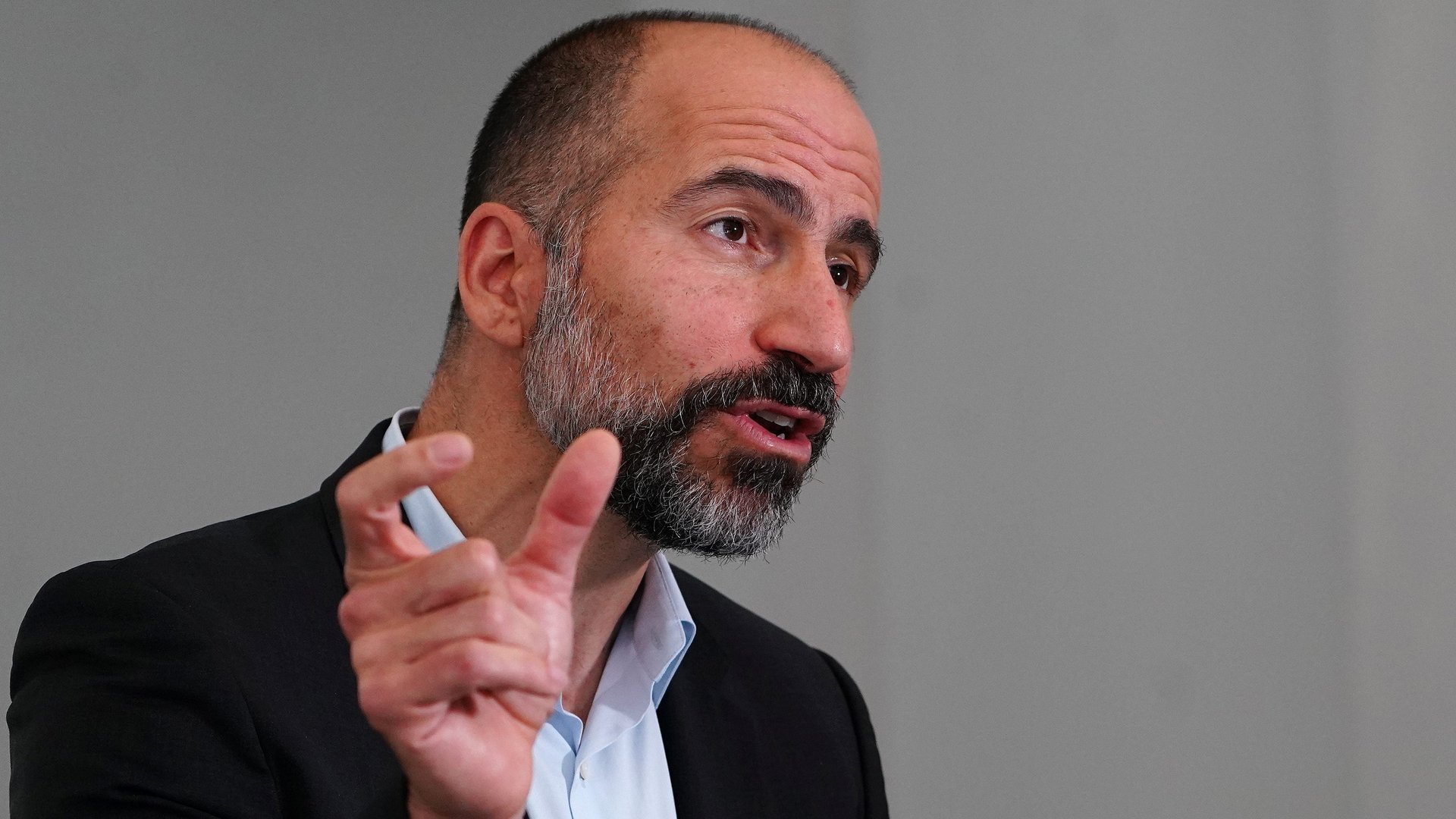Uber’s earnings were even worse than investors feared
Uber’s share price sank today after the company reported a $5.2 billion loss in the second quarter—yes, that is billion with a “b”—on sales that fell short expectations.


Uber’s share price sank today after the company reported a $5.2 billion loss in the second quarter—yes, that is billion with a “b”—on sales that fell short expectations.
The massive loss, revealed after the market closed yesterday, was partly expected. Uber went public in May, and a $3.9 billion stock-based compensation bill came due in the second quarter. But the actual loss proved nearly 50% greater than the $3.6 billion figure analysts had pencilled in.
Then, there was the revenue miss. Analysts expected Uber to book $3.3 billion in revenue for the quarter, but it recorded $3.2 billion. Uber’s share price fell nearly 10% when trading opened, and had recovered only modestly at the time of writing.
Uber’s dismal second-quarter performance looks worse when compared with the strong results reported by US rival Lyft a day earlier. Lyft reported $867 million in quarterly revenue, beating expectations by about 7%, and said revenue per active rider was up to $39.77, a 22% increase from the same period in 2018. Lyft’s second-quarter loss was also wider than analysts had hoped, but the company said it had adjusted full-year forecasts and expected its 2019 adjusted loss would be less than its 2018 one, after previously warning losses could continue to escalate this year.
What’s worrying Uber investors is how dramatically the company’s growth has slowed. Uber’s year-over-year revenue growth has slowed in each of the past six quarters, with the rate it reported for the second quarter—14%—its slowest yet. Uber CEO Dara Khosrowshahi said on a call with investors that he believes Uber “can continue to invest aggressively in growth while driving efficiencies from scale,” but the company’s financial results make it seem like those investments may not be working.
The subtext to all of this is subsidies. Ride-hail customers, and to a lesser extent drivers, have feasted for years on promotions designed to make trips less expensive or, in the case of drivers, boost their net pay. These subsidies were fueled by funding from venture capitalists, which is a finite resource. Both Uber and Lyft are now attempting to wean their users from discounts as they attempt to turn their businesses profitable.
Lyft said earlier this week that it was raising prices and believed others in the industry would follow suit. Khosrowshahi pointed out that Uber’s “promotion expense” was down quarter over quarter, particularly in the US. He declined to say whether Uber would raise prices, but like Lyft pointed to a better “competitive environment.”
“The combination of better science, better marketing, and a more constructive environment we think makes for a decent to hopefully better-than-decent second half for us,” Khosrowshahi said. With Uber’s stock still trading well below its $45 IPO price, that may be the best the company can hope for.